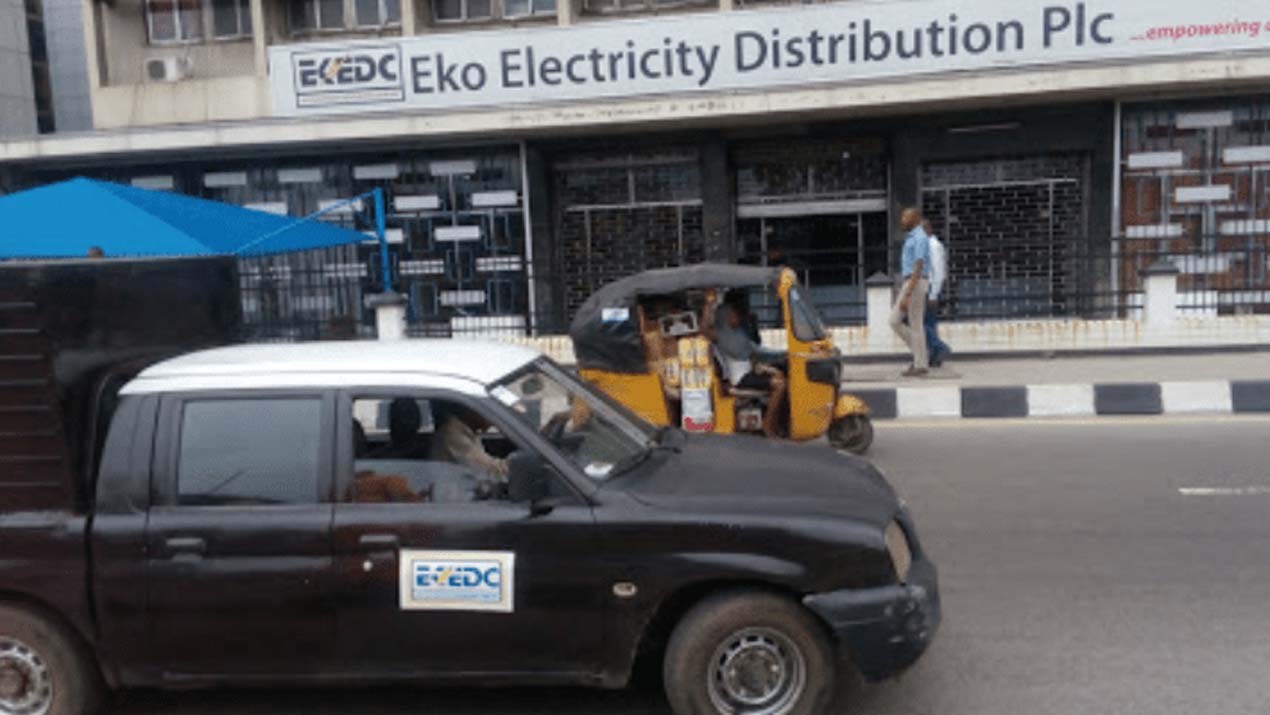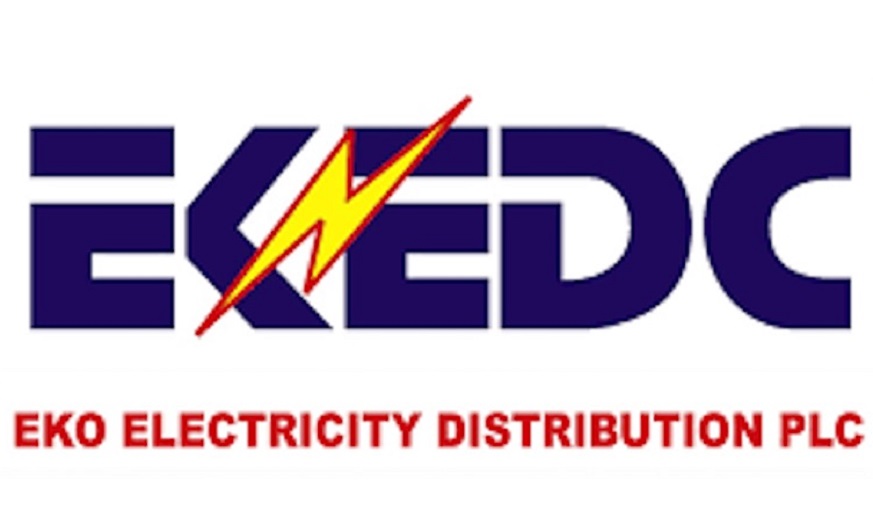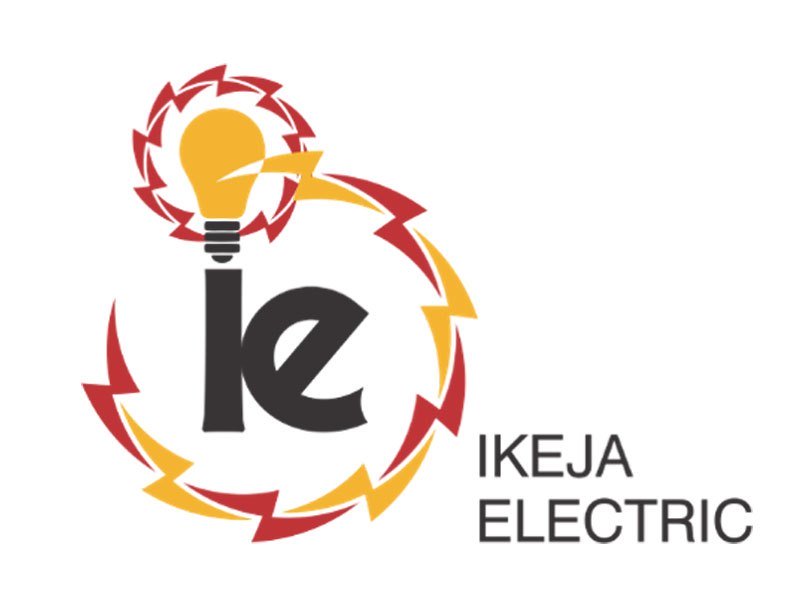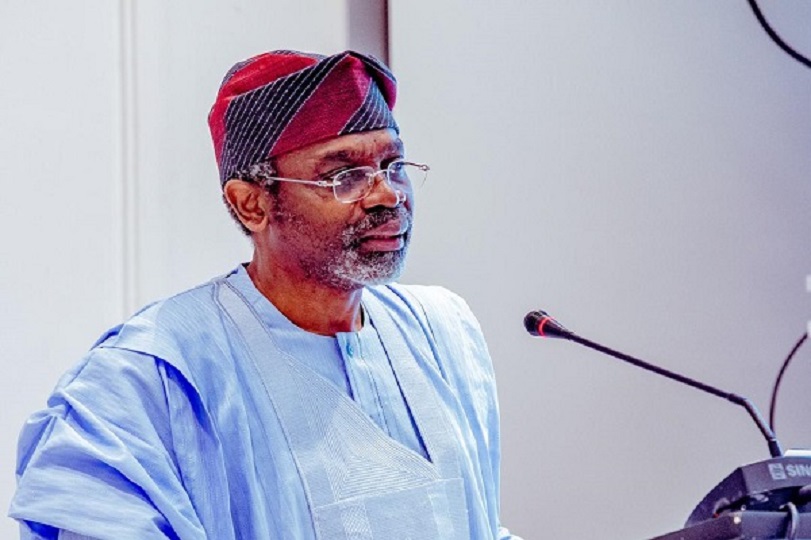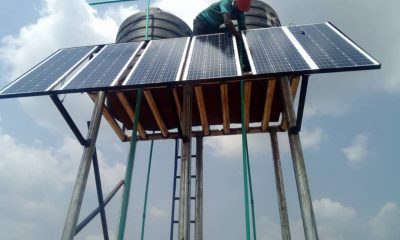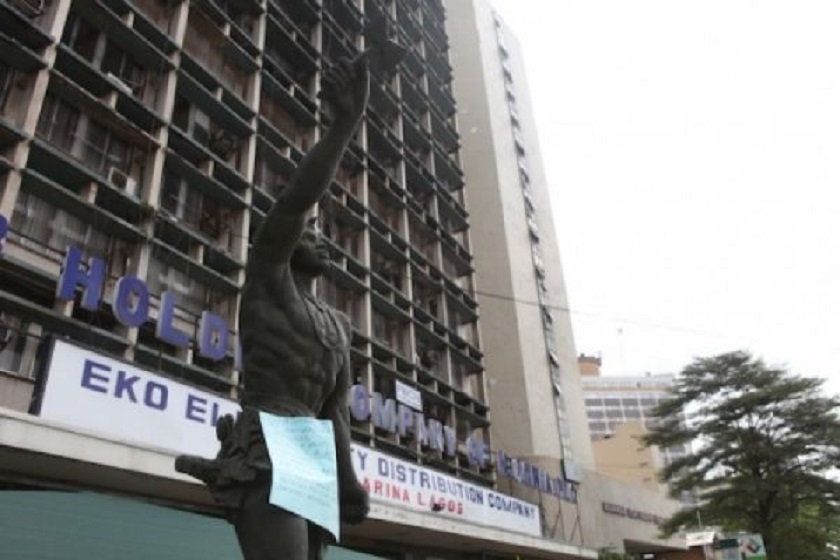General
Eko Disco Assures Customers Improved Electricity Supply

By Modupe Gbadeyanka
Consumers of electricity under the franchise network areas of Eko Electricity Distribution Company Plc (Eko Disco) have been assured of an improved supply.
This assurance was given by the Managing Director of Eko Disco, Mr Adeoye Fadeyibi, when the energy firm sealed a deal with the Niger Delta Power Holding Company (NDPHC) recently in Lagos.
Mr Fadeyibi explained that the desire to improve the quality of electricity supply to its customers triggered the collaboration with NDPHC, thanking the customers for their support and patience.
Eko Disco supplies energy to customers living around the Ibeju-Lekki area in Lagos and the Agbara Industrial area in Ogun State.
The deal with NDPHC is for the sale of up to 300MW of power from NDPHC’s power plants to customers in these areas within Eko Disco’s franchise areas.
The sealing of the transaction was witnessed by the Governor of Lagos State, Mr Babajide Sanwo-Olu, at the Lagos House, Marina.
The project will be structured to remove the commercial and technical inefficiencies in the Nigerian electricity market and will mobilise significant capital investment in transmission/distribution infrastructure and metering technology.
Commenting on the transaction, the MD/CEO of NDPHC, Mr Chiedu Ugbo, stated that the challenges in the industry inspired NDPHC to “source alternative means to sell and ensure dispatch of its stranded power generation capacity and explore innovative ways to unlock investment in infrastructure for improved supply to customers.”
The agreement signed between NDPHC and Eko Disco is only the latest milestone in NDPHC’s innovative and ambitious programme to tackle the industry-wide challenges in the Nigerian power sector.
Despite a significant installed generation capacity – estimated to be more than 13,000 MW – access to electricity remains acutely low because much of this installed capacity is stranded and cannot be conveyed to customers because of inadequate transmission and distribution capacity.
Operators insist that tariffs remain at a level that cannot guarantee returns for investors in the sector and as a result, an estimated $20 billion capital investment required to upgrade the transmission and generation infrastructure is not available.
Insufficient investment in metering, collection and surveillance, among other factors, has also made collections by the distribution companies inefficient, thereby causing revenue loss across the value chain.
A combination of these factors has led to severe liquidity shortfalls and a ballooning deficit in the market, and there simply is not enough collections from customers to cover the cost of power generation and delivery. The Federal Government has on several occasions intervened with financial bailouts to the sector, but this solution is only short term and is becoming an increasingly heavy burden on a cash-strapped government struggling with low oil prices and a struggling national economy.
General
N185bn Gas Debts Clearance to Stabilize Power Sector, Revive Investment—FG

By Adedapo Adesanya
The federal government’s approval of N185 billion as the settlement for long standing debts owed to gas producers in the country has been described as a major boost for Nigeria’s gas industry and power generation value chain.
The decision, endorsed by the National Economic Council (NEC) chaired by Vice President Kashim Shettima, followed the authorisation by President Bola Tinubu and represents one of the most significant fiscal interventions in the energy sector in recent years.
The legacy debts, accumulated over years for gas supplied to power plants, have constrained cash flow for producers, discouraged new investments and reduced gas supply to electricity generation, worsening Nigeria’s chronic power shortages.
Under the approved framework, the debts will be settled through a royalty-offset arrangement, a mechanism expected to ease government liabilities while restoring confidence among domestic and international gas suppliers.
The Minister of State for Petroleum Resources (Gas), Mr Ekperikpe Ekpo, described the approval as a turning point for the sector.
“This is a decisive step towards revitalising Nigeria’s gas sector and strengthening its power-generation capacity in a sustainable manner,” Mr Ekpo said, adding that the move aligns with President Tinubu’s commitment to resolving structural bottlenecks in the energy industry.
He noted that clearing the arrears would help rebuild trust between government and gas producers, many of whom had slowed investments due to persistent payment uncertainties.
“Settling these debts is critical to restoring investor confidence, reviving upstream activities and accelerating exploration and production,” Mr Ekpo stated.
According to him, increased gas output would directly translate into improved power generation, helping to address electricity shortages that have long constrained industrial productivity and economic growth.
The gas minister further explained that the intervention supports the Federal Government’s Decade of Gas initiative, which targets unlocking more than 12 billion cubic feet per day of gas supply by 2030.
On his part, the Coordinating Director of the Decade of Gas Secretariat, Mr Ed Ubong, said the decision sends a strong signal to investors across the gas-to-power value chain.
“This approval underlines the Federal Government’s determination to clear legacy liabilities and assure gas producers that supplies to power generation will be honoured,” Mr Ubong said.
He added that the move could unlock stalled projects, revive investor interest and rebuild momentum toward Nigeria’s transition to a gas-driven economy.
The settlement could mark a critical step in stabilising gas supply to power plants, improving electricity reliability and positioning gas as a catalyst for industrialisation and long-term economic growth.
General
Be Watchful of Economic Hardship in 2026–Primate Ayodele Tasks FG
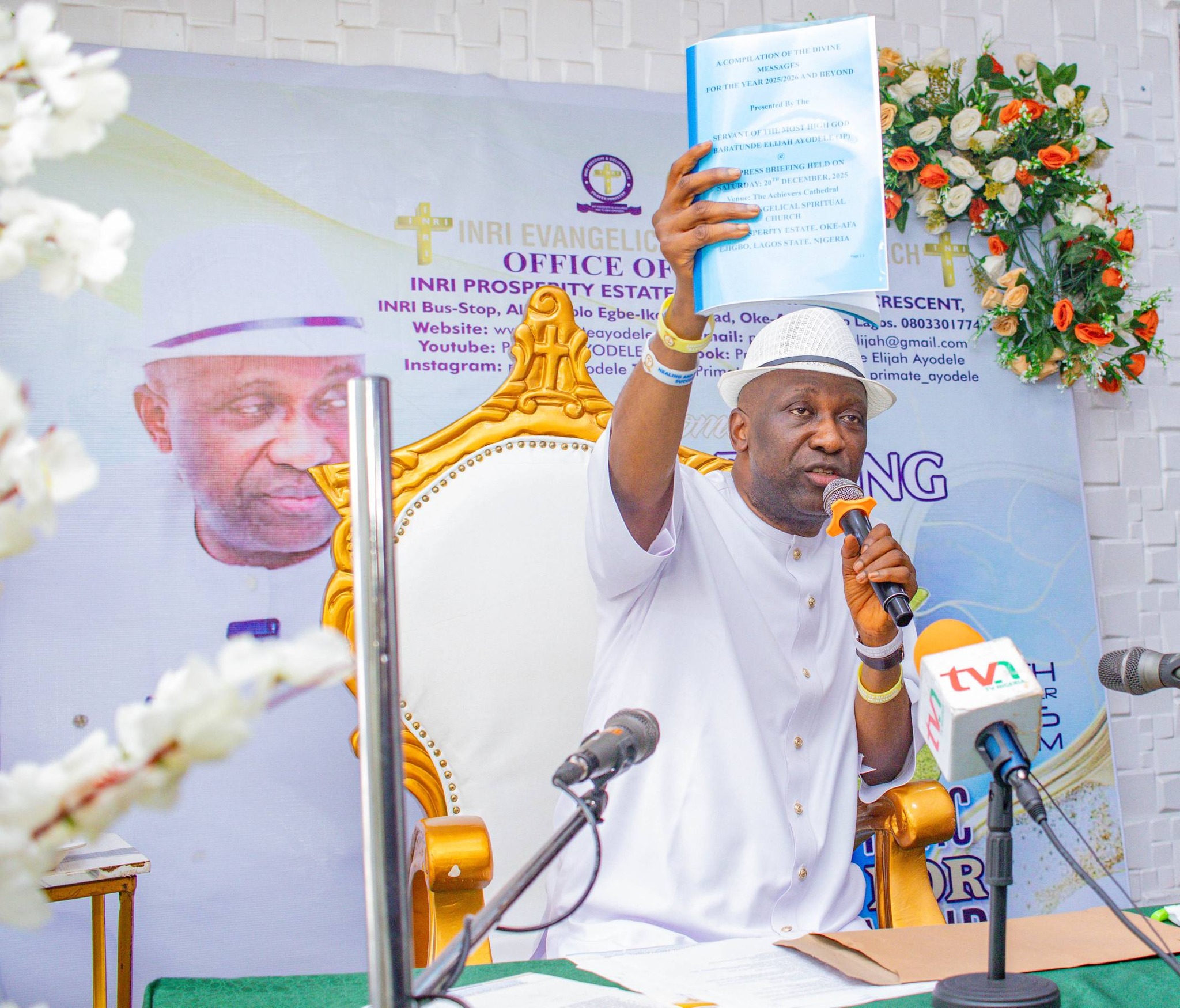
By Adedapo Adesanya
Popular Nigerian prophet and founder of INRI Evangelical Spiritual Church Lagos, Primate Elijah Ayodele, has called on the Nigerian government to be careful and watchful of economic hardship in the new year.
He made this warning and others at his End of the Year 2025 Press Conference, where he gave prophecies for Nigeria and the world.
According to the man of God, the government will do its utmost best to stabilize things but the balancing will be very difficult.
“The country will face so many political upheaval that will frustrate the efforts of the government in all fronts. I foresee the government in the process will take a lot of wrong steps. There will be wrong pieces of advice,” he said.
“The Lord revealed to me that the efforts of the President will be frustrated with wrong pieces of advice. These are the words of the Lord,” he added.
Primate Ayodele noted that “The spirit of God says in the year 2026, the President must be watchful for what is tagged political nemesis in the country. He needs fervent prayers in this regard.”
He warned President Bola Tinubu to be wary of several advices from different quarters, noting that Nigeria’s opposition groups will frustrate all his efforts unless he is able to take decisive steps to scuttle and scatter the plans, particularly that of the African Democratic Congress (ADC).
“I foresee the ADC members are ready to fight in order to wrestle for the political control of the country from the ruling APC. The main obstacle will be if the ADC is fielding a weak candidate. The ADC will want to use all the apparatus at its command to achieve what they want to do in order to achieve victory at the polls.”
On the 2027 polls, he said the ruling All Progressives Congress (APC) would do everything possible to make sure they use the Independent National Electoral Commission (INEC) and other things within their powers to secure victory.
“The ADC as a political party must watch carefully the unfolding drama. I foresee that all areas where the ADC can have an upper hand during polls will be blocked.”
The prophet as part of his prophecies also foresaw the crude oil from the Nigeria not being of quality grades expected in the international oil and gas market in the next 20 years from now.
On the tax reforms due to start in the new year, Primate Ayodele said this would cause misconceptions and the government needs to explain.
“I foresee our budget will not be properly implemented. They will use budget to fight inflation and hunger yet Tinubu will still borrow surplus money. People will be frustrated,” he said in the prophecies.
General
QNET’s Global Reach in 100+ Countries: What International Access Means for Local Distributors

Global scale means market access and international supply chains. For individual distributors in direct selling, it can shape everything from product availability to income stability and long-term opportunity.
QNET, the multinational wellness and lifestyle direct selling company, positions its business model around that idea: connecting locally based independent distributors to an international operating platform. With activity spanning more than 100 countries, the company sits within a direct selling industry that, according to the World Federation of Direct Selling Associations (WFDSA), has stabilized after several relatively volatile post-pandemic years.
Global Reach Within a Stabilizing Industry
The WFDSA’s latest global report estimates worldwide direct selling retail sales at roughly $163.9 billion in 2024, essentially flat year over year. That flat performance, however, masks gradual improvement beneath the surface. Nearly half of reporting markets showed growth in 2024, and average market growth rates rebounded to positive territory.
The report estimates more than 104 million independent sales representatives globally in 2024, a figure that has remained largely stable year over year.
This stabilization sets a backdrop for companies like QNET. A global footprint is no longer about rapid expansion alone; it is increasingly tied to resilience: operating across regions with different economic cycles, consumer behaviors, and growth trajectories.
For distributors, this matters because opportunities extend beyond individual effort. They are often shaped by the health of the company’s broader channel and product reach.
A Platform Designed for Distributed Entrepreneurship
QNET’s model centers on local execution supported by centralized infrastructure. Products—ranging from nutritional supplements and wellness devices to home and lifestyle solutions—are sold through the company’s proprietary e-commerce platform. Independent distributors do not manage warehouses, shipment logistics, or customer service systems.
As Ramya Chandrasekaran, who heads communications at QNET, explained in a recent interview, the company views direct selling as a form of accessible “micro-entrepreneurship.” The idea is to reduce the operational burden typically associated with starting a business, allowing distributors to focus on product education, customer relationships, and market development.
Why Global Scale Changes the Distributor Equation
One practical benefit of international reach is product continuity. WFDSA data shows that wellness products account for roughly 29% of global direct selling sales, making it the largest category worldwide. In the Asia-Pacific region, the largest direct selling region by sales, wellness represents more than 40% of total category share.
QNET’s emphasis on wellness and lifestyle products places distributors in line with the strongest demand segments globally. Instead of relying on narrow local trends, distributors operate within product categories that have shown consistent global interest.
International scale also supports consistency in training, compensation structures, and digital tools. Distributors in different countries access identical back-end systems, tracking referrals, commissions, and orders through the same platform. This standardization reduces friction and uncertainty, particularly for individuals operating in markets where informal commerce is common.
Workforce Shifts
The WFDSA’s report highlights notable shifts in the global direct selling workforce. Women continue to make up more than 70% of participants worldwide, and representation among individuals aged 35 to 54 remains the largest cohort.
Independent Distributors increasingly value flexibility, long-term viability, and support systems that allow them to operate sustainably rather than aggressively scale. QNET’s emphasis on digital access, centralized operations, and gradual business building reflects those priorities.
For many participants, especially those balancing work with caregiving or other responsibilities, direct selling infrastructure offers a way to stay engaged at their own pace.
Training, Exposure, and Cross-Market Learning
QNET’s international conventions and training programs connect distributors across regions, creating informal networks for peer learning. Events that draw participants from dozens of countries expose distributors to varied approaches to sales, customer engagement, and market adaptation.
This mirrors one of WFDSA’s broader conclusions: direct selling increasingly functions as a global learning ecosystem, with companies providing tools and education that help individuals navigate uncertain economic conditions.
For distributors, exposure to cross-border experiences can recalibrate expectations, reinforcing that success often comes from steady engagement rather than rapid recruitment or short-term activity.
International Access, Interpreted Locally
Despite its global scale, QNET’s business ultimately plays out in local communities. Distributors adapt messaging around wellness, home quality, and lifestyle enhancement to cultural norms and household priorities. The international platform provides reach and structure, but relevance is built locally.
That balance, global systems supporting local relationships, defines much of modern direct selling. The WFDSA describes the industry not as a single growth story, but as a framework that can scale proportionally with economic conditions across regions.
For QNET distributors, international presence does not guarantee income or uniform outcomes. What it offers is access: to resilient product categories, standardized systems, training resources, and a global marketplace that extends beyond any single region. For local distributors navigating today’s uncertain global economic environment, that is an important foundation to maintain.
-

 Feature/OPED6 years ago
Feature/OPED6 years agoDavos was Different this year
-
Travel/Tourism9 years ago
Lagos Seals Western Lodge Hotel In Ikorodu
-

 Showbiz3 years ago
Showbiz3 years agoEstranged Lover Releases Videos of Empress Njamah Bathing
-

 Banking7 years ago
Banking7 years agoSort Codes of GTBank Branches in Nigeria
-

 Economy3 years ago
Economy3 years agoSubsidy Removal: CNG at N130 Per Litre Cheaper Than Petrol—IPMAN
-

 Banking3 years ago
Banking3 years agoFirst Bank Announces Planned Downtime
-

 Banking3 years ago
Banking3 years agoSort Codes of UBA Branches in Nigeria
-

 Sports3 years ago
Sports3 years agoHighest Paid Nigerian Footballer – How Much Do Nigerian Footballers Earn



